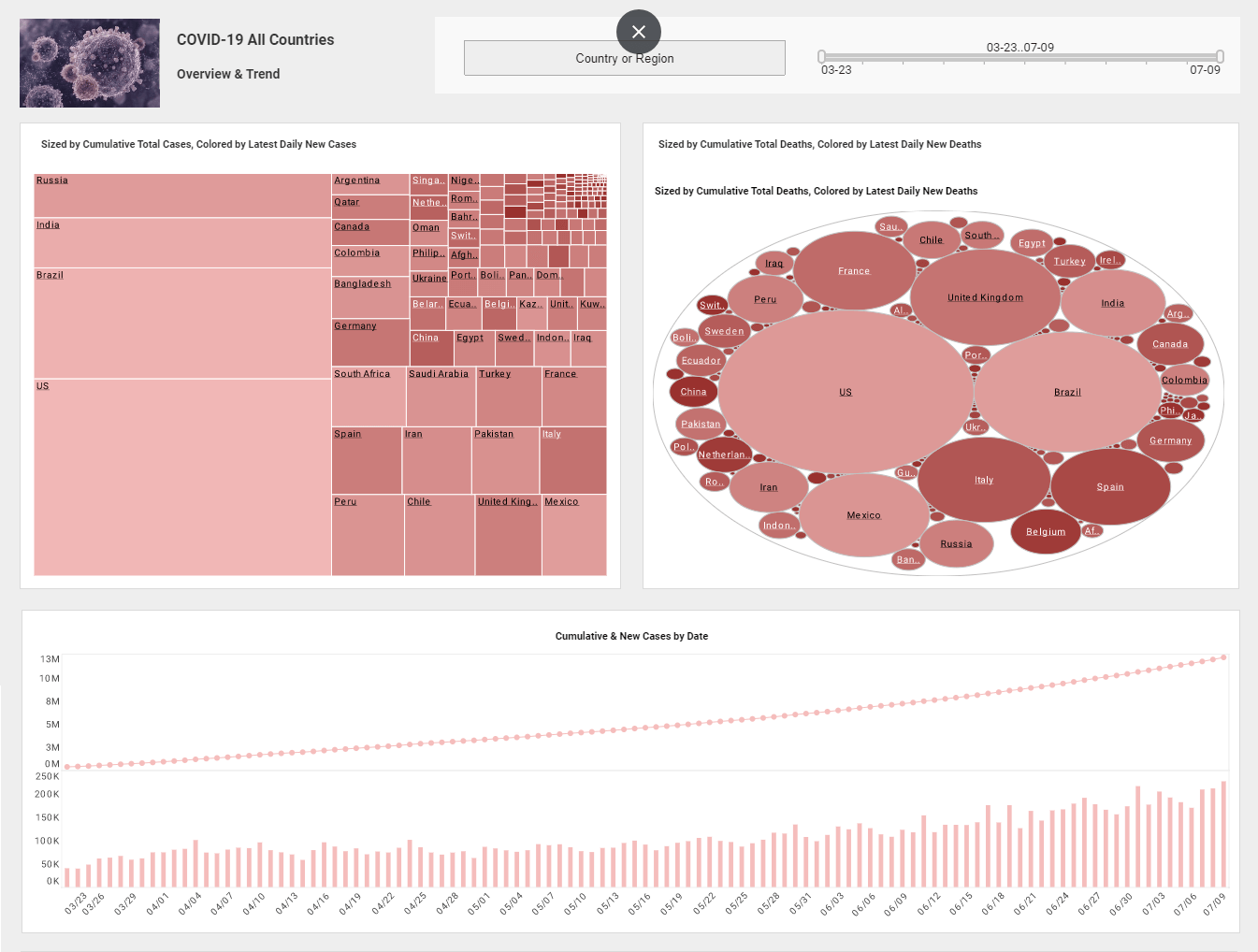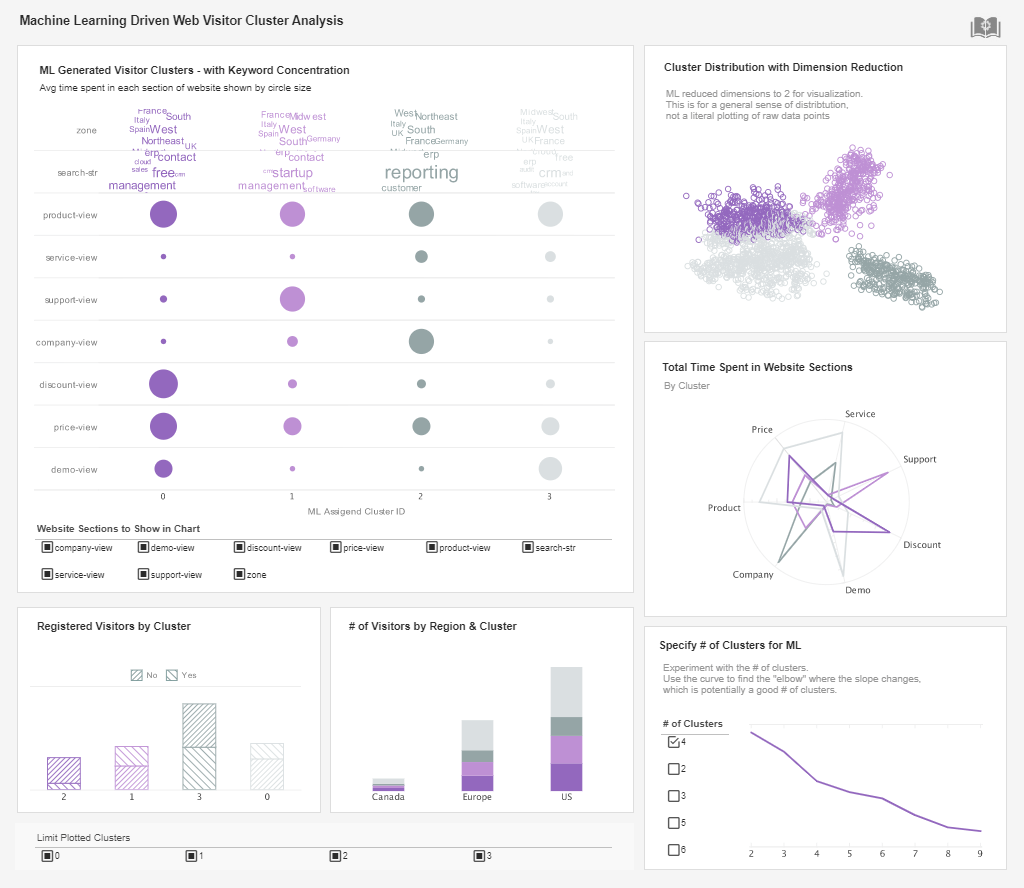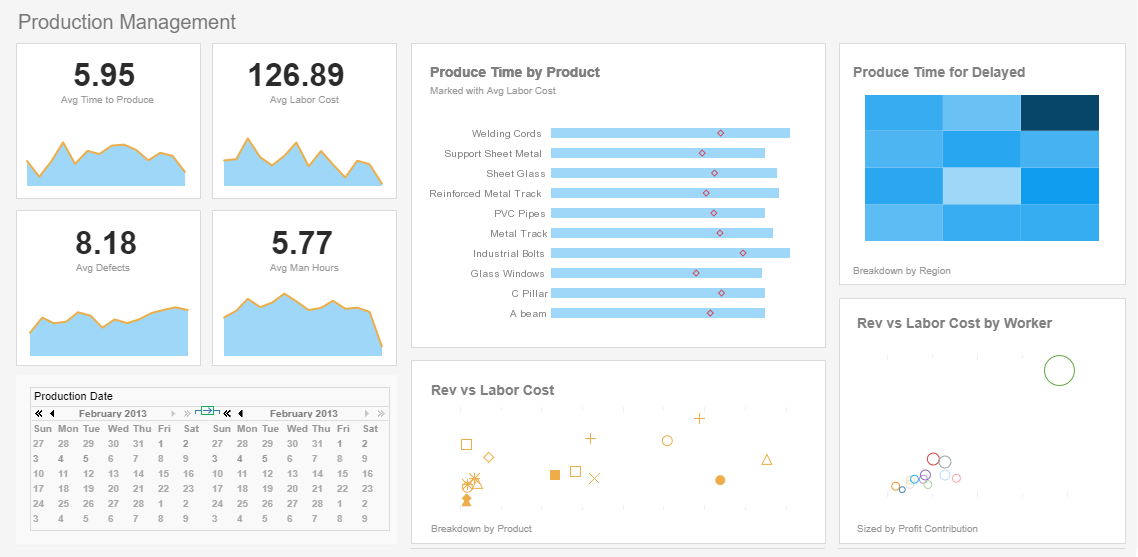What are Good Ways to Connect Data Marts?
Data marts are essential for enabling departments to store data that is specific to their business needs. However, users often have to perform analyses which require information from the data marts of other departments.
Executives also must have access to company-wide data. Since individual requests for specific data are costly and time-consuming, data marts must be consolidated.
But simply connecting the data marts does not necessarily result in a unified system of information. The various data marts are often in multiple different formats that contain bits and pieces of duplicate information, resulting in system redundancies.
Conflicting data often amplifies issues as the number of data marts increases.
With InetSoft's BI app, you can connect to data marts and create interactive dashboards from them.

The Data Warehouse Option
The "classic" solution to this problem has typically been for an organization to implement a data warehouse to contain its data. From this centralized source of data, data marts are constructed according to the needs of business users. With a data warehouse, all details come from a single, consistent source.
However, the data warehouse can be a huge cost to an organization. Its construction often takes years to complete, only after which the building of the individual data marts can begin. Data warehouse implementation can also can have a huge upfront cost, followed by monthly overhead and updates. Fortunately, there is a third alternative.
An Easy Way to Combine Multiple Data Sources
InetSoft's StyleBI provides a quick and inexpensive solution to the problem of connecting data marts. The software allows end users to create analyses and mashups from various sources, enabling a simple and easy way of connecting disparate data marts without resorting to exhaustive data warehouses. These mashups can be created from many different open source systems, including the data marts themselves.
As a user-friendly, web-based application, StyleBI not only allows executives to perform company-wide analyses, but also drilldown analysis to granular data. Different levels of information access can be granted to different employees, enabling organizations to balance security more efficiently. By reducing or eliminating the need for a costly system, InetSoft's Style Intelligence provides a solution that is truly state of the art.

More Articles About Data Mart Reporting
- Connect Data Marts
InetSoft explains practical approaches for combining multiple, discrete data marts so users can analyze cross-domain information without building a full enterprise warehouse. The article emphasizes lightweight mashups and virtual views that let business users create meaningful analyses from existing stores. It frames these patterns as a faster, lower-cost path to integrated insight while preserving local ownership of marts.
-
Manually Updated Datamart
This page defines reporting tools and contrasts them with ad-hoc datastores such as spreadsheets and manually updated datamarts. It argues that while spreadsheets can act as temporary datamarts for quick analysis, proper reporting tools provide governance, scheduling, and scalable production reporting. The write-up highlights how using a dedicated reporting application reduces errors and saves analysts’ time.
-
Data Warehouse Or Data Mart
The roundup of top BI tools explains how many analytics applications read from a prebuilt data warehouse or data mart and why that architecture remains common. It contrasts tool capabilities and suggests when a physical mart is preferable for performance or historical snapshots. The article helps buyers map BI features to their data-storage strategy.
-
Mini Datamart Solution
The RFI template page includes case examples where a low-impact “mini datamart” solved production database performance issues after rollout. It explains how a small, focused mart plus adjusted metadata definitions restored acceptable report performance quickly. The guidance is practical for organizations needing to reduce reporting load on transactional systems without a major ETL program.
-
Data Mart Or Data Warehouse
This product/features overview explains the tradeoffs between logical OLAP overlays and implementing a dedicated data mart or data warehouse for heavy analytical workloads. The page covers scenarios where physical marts improve performance, preserve snapshots, or simplify complex joins. It positions InetSoft’s options against these architectural choices so planners can select the right approach for scale and latency needs.
-
Independent Data Marts For
Patients
In a healthcare-focused webinar transcript, the author discusses how many organizations build independent data marts for patients, providers, visits, and other domains. The piece highlights the difficulty of integrating multiple, summarized marts when a unified, low-level view is required. It advocates for agile data approaches to avoid long delays between business need and actionable analytics.
-
Client To This Data Mart
This article examines the common practice of using spreadsheets as light data management systems and how they can act as clients to a central data mart or warehouse. It shows how centralizing the authoritative store reduces inconsistent definitions and repetitive data collection. The author recommends using spreadsheets for familiar analysis while relying on a governed mart for accuracy and scale.
-
Traditional Waterfall
Approach To
The piece compares the speed of data mashup platforms with traditional waterfall ETL and data mart development, claiming mashups are often 4–5× faster to integrate new sources. It discusses when a physical mart still makes sense and how mashups can coexist with existing warehouses. The guidance helps teams prioritize fast, iterative analytics when use cases are evolving.
-
Maintaining That Data Warehouse
This page outlines methods for integrating data from multiple source systems and notes the maintenance burden of building and keeping a data warehouse or data marts in sync. It promotes on-the-fly mashups and data integration tooling to reduce replication and simplify access. Practical advice covers refresh patterns, governance, and finding the right balance between physical stores and virtual views.
-
Dedicated Data Mart Or Data Warehouse
This article surveys alternatives to traditional data warehousing and explains the situations in which a dedicated data mart or warehouse still provides the best performance. It introduces options like materialized OLAP overlays and star schemas for cases where logical overlays are insufficient. The write-up helps technical leaders evaluate when to invest in physical marts versus lighter-weight overlay strategies.
About InetSoft
Since 1996 InetSoft has been delivering easy, agile, and robust business intelligence software that makes it possible for organizations and solution providers of all sizes to deploy or embed full-featured business intelligence solutions. Application highlights include visually-compelling and interactive dashboards that ensure greater end-user adoption plus pixel-perfect report generation, scheduling, and bursting.
InetSoft's patent pending Data Block™ technology enables productive reuse of queries and a unique capability for end-user defined data mashup. This capability combined with efficient information access enabled by InetSoft's visual analysis technologies allows maximum self-service that benefits the average business user, the IT administrator, and the developer.
InetSoft solutions have been deployed at over 5,000 organizations worldwide, including 25% of Fortune 500 companies, spanning all types of industries.


